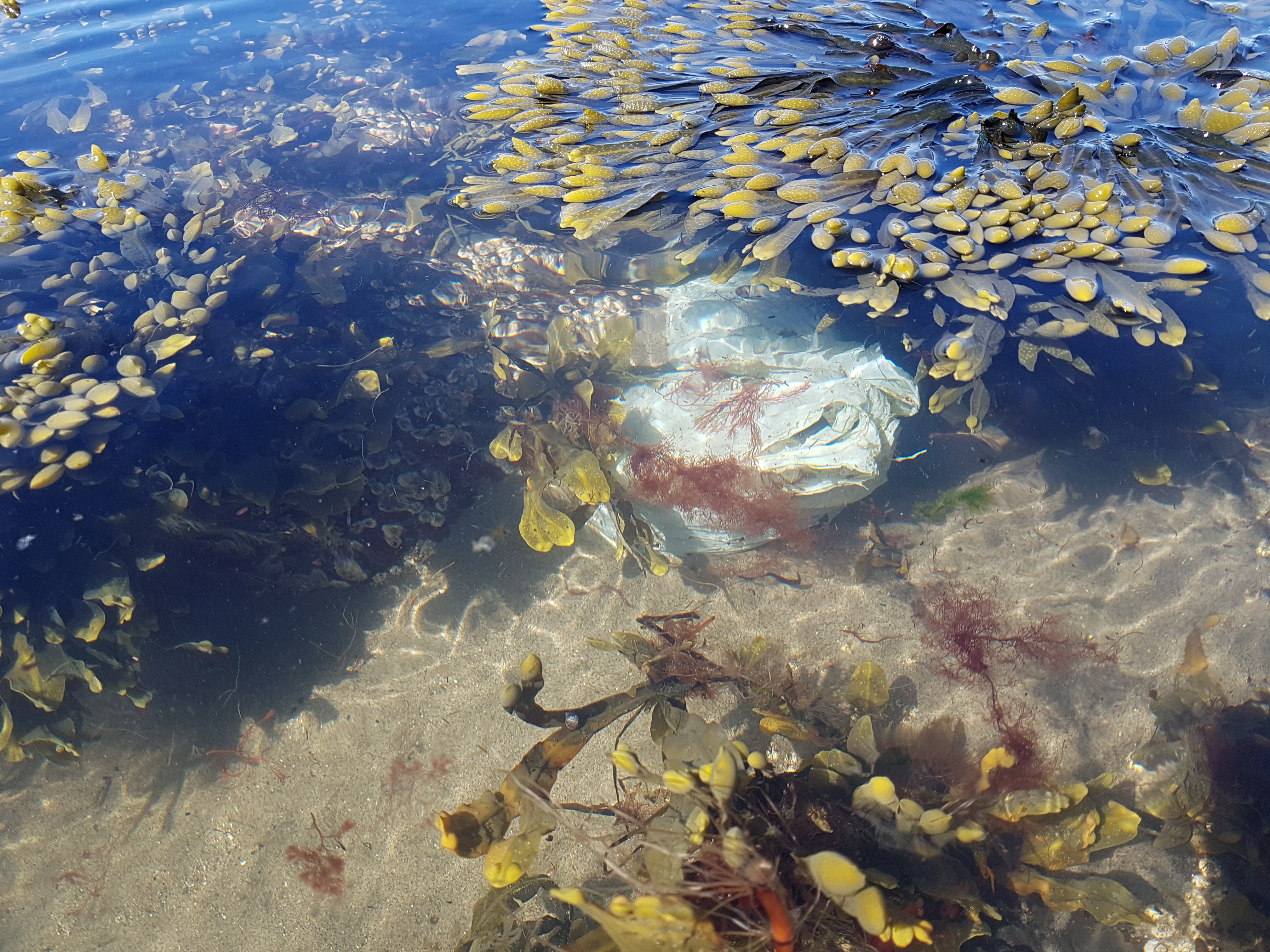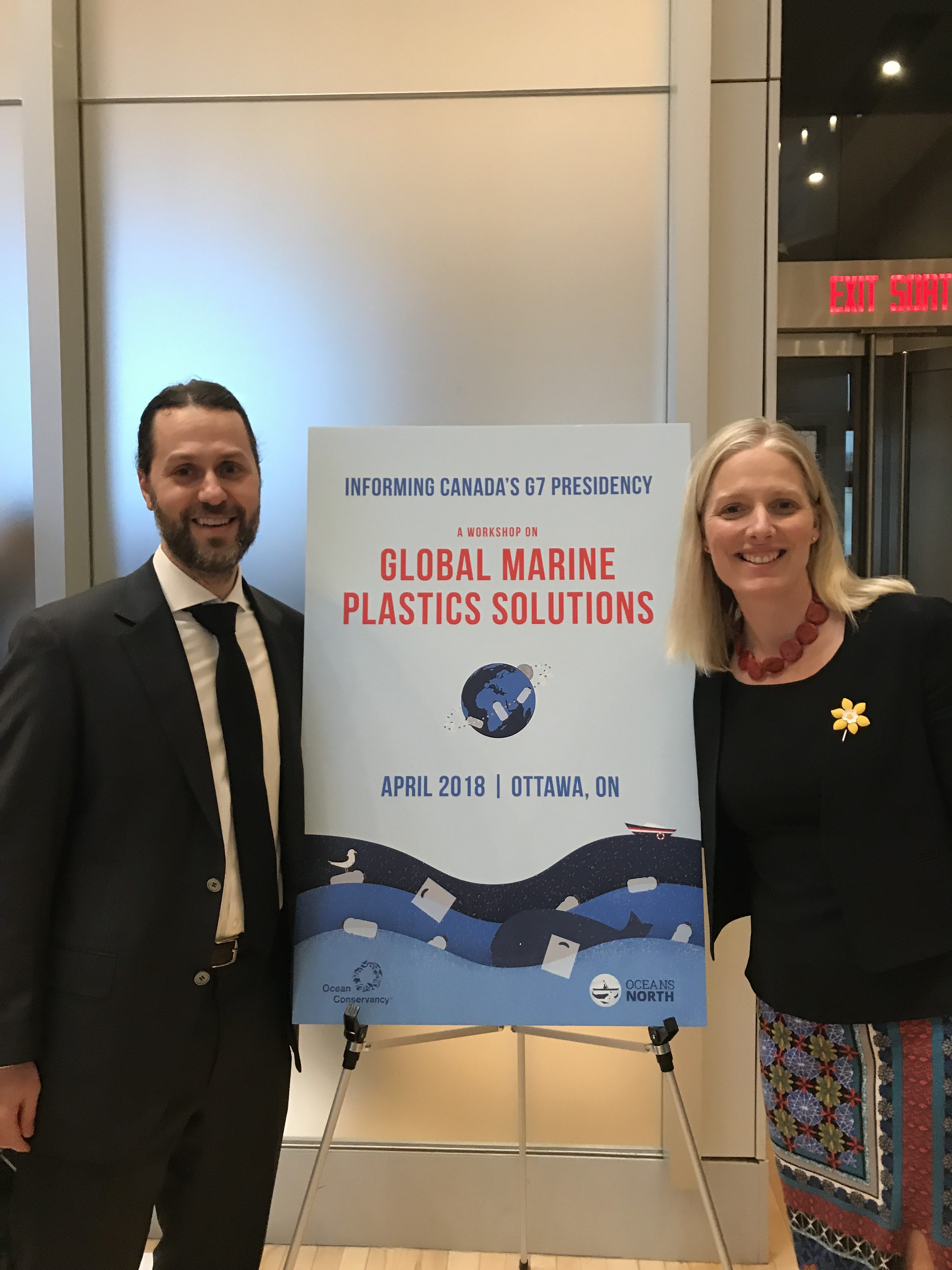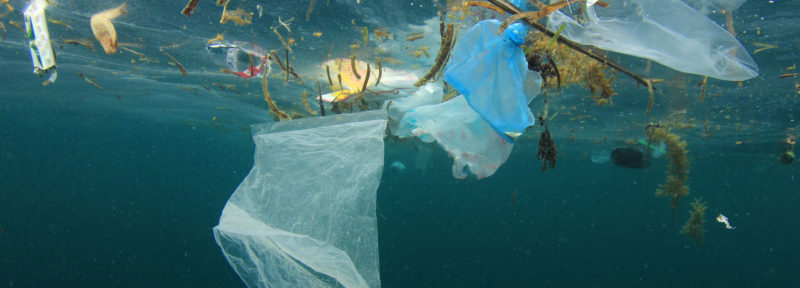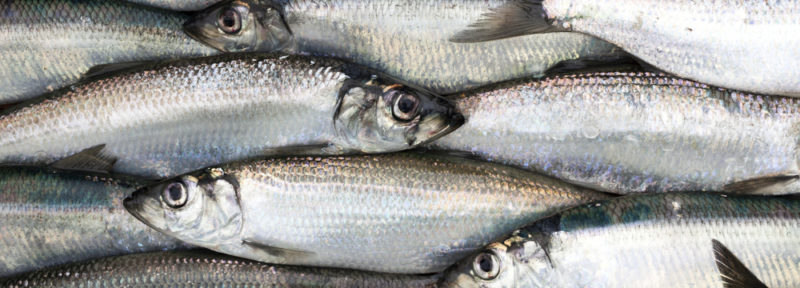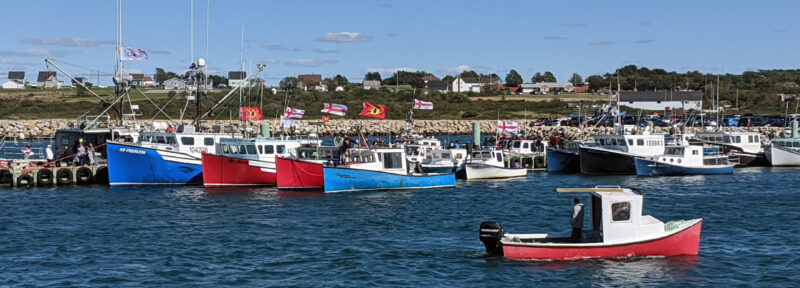How Canada’s G7 Leadership Can Help Reduce Plastics in the World’s Oceans
When Canada hosts a G7 summit meeting in Charlevoix, Quebec next month, Environment Minister Catherine McKenna has pledged to work with other world leaders to reduce the more than 8 million metric tonnes of plastic that ends up in the oceans each year.
Plastic bag discovered in ocean during trash cleanup near Halifax, Nova Scotia in April 2018.
Credit: Oceans North
To support this important goal, Oceans North and Ocean Conservancy organized a one-day workshop in Ottawa on April 25 that brought together 60 key experts from industry, local and national governments, scientists and conservation groups.
“There was a lot of common ground,” said Louie Porta, vice-president of operations for Oceans North. “We came up with a top ten list of ideas that a G7 initiative needs to include on marine debris.”
That list was shared with Minister McKenna when she met with workshop leaders at the end of the day.
Canada's Environment Minister Catherine McKenna attends Ottawa workshop sponsored by Louie Porta, vice-president of operations at Oceans North in collaboration with Ocean Conservancy.
Credit: Oceans North
One of the recommendations that had widespread support is for Canada to show leadership at home by establishing a harmonized national “extended producer responsibility” policy. This would require companies to take responsibility for the environmental impacts of plastic products throughout their entire life cycle. This would include proper disposal of plastic products, from recycling to reuse and other waste management solutions.
Another key suggestion was to create a global network of municipalities to work on cleaning up marine debris since 80 percent of plastic litter in the oceans is generated on land. An additional 20 percent comes from sea-based sources, including lost and abandoned fishing gear. A city-to-city approach could be especially important for remote northern communities in Canada and elsewhere that lack waste management systems because of economic and geographic hurdles.
“Northerners are concerned about this. These are places where people rely on the marine environment for a healthy lifestyle,” Porta said.
Cities are critical actors when it comes to managing plastic waste since they are both the leading edge when setting goals and policies and the last defence before items escape into the environment, said Susan Ruffo, managing director for international initiatives at Ocean Conservancy.
“Engaging mayors and city leaders is critical to setting up systems that will work,” Ruffo said.
A third idea was to have G7 countries negotiate an agreement to stop the flow of plastics into the ocean, along with China and the four Southeast Asian countries that generate 50 percent of the marine debris. Such an accord could be modeled after the landmark international Arctic fisheries agreement that was negotiated last year between 10 countries to protect that region from commercial fishing.
G7 countries can also take the lead on setting standards for recycled content, plastic waste reduction targets and minimizing the leakage of plastic into the marine environment.
The next step will be to compile a report on the workshop’s findings and top recommendations that will be submitted to Minister McKenna before the G7 summit next month.
Three days before the Ottawa workshop, Minister McKenna participated in a beach cleanup near Halifax, Nova Scotia, helping 150 volunteers collect 100 bags of marine debris. The event was organized by Oceans North, Ecology Action Centre, Friends of McNabs Island and Ocean Conservancy.

